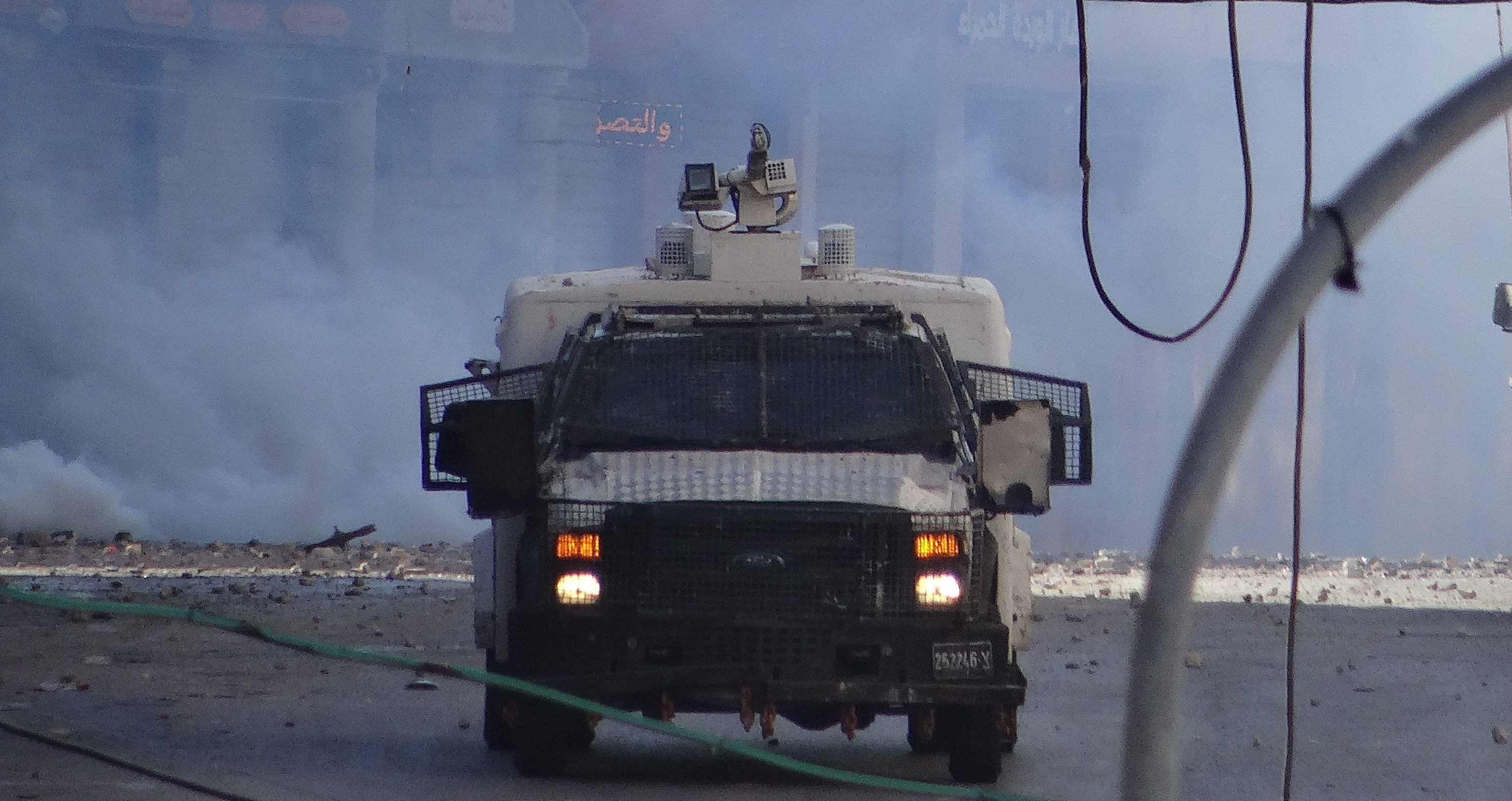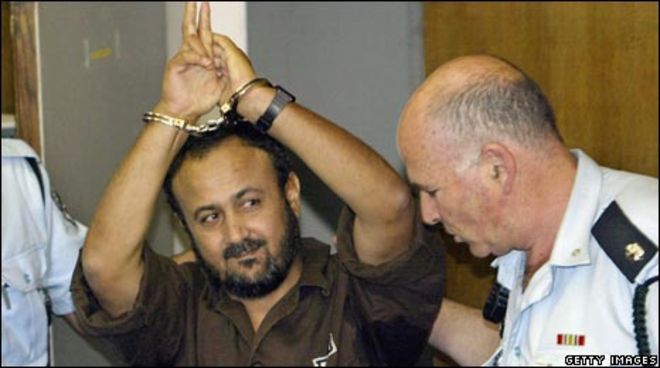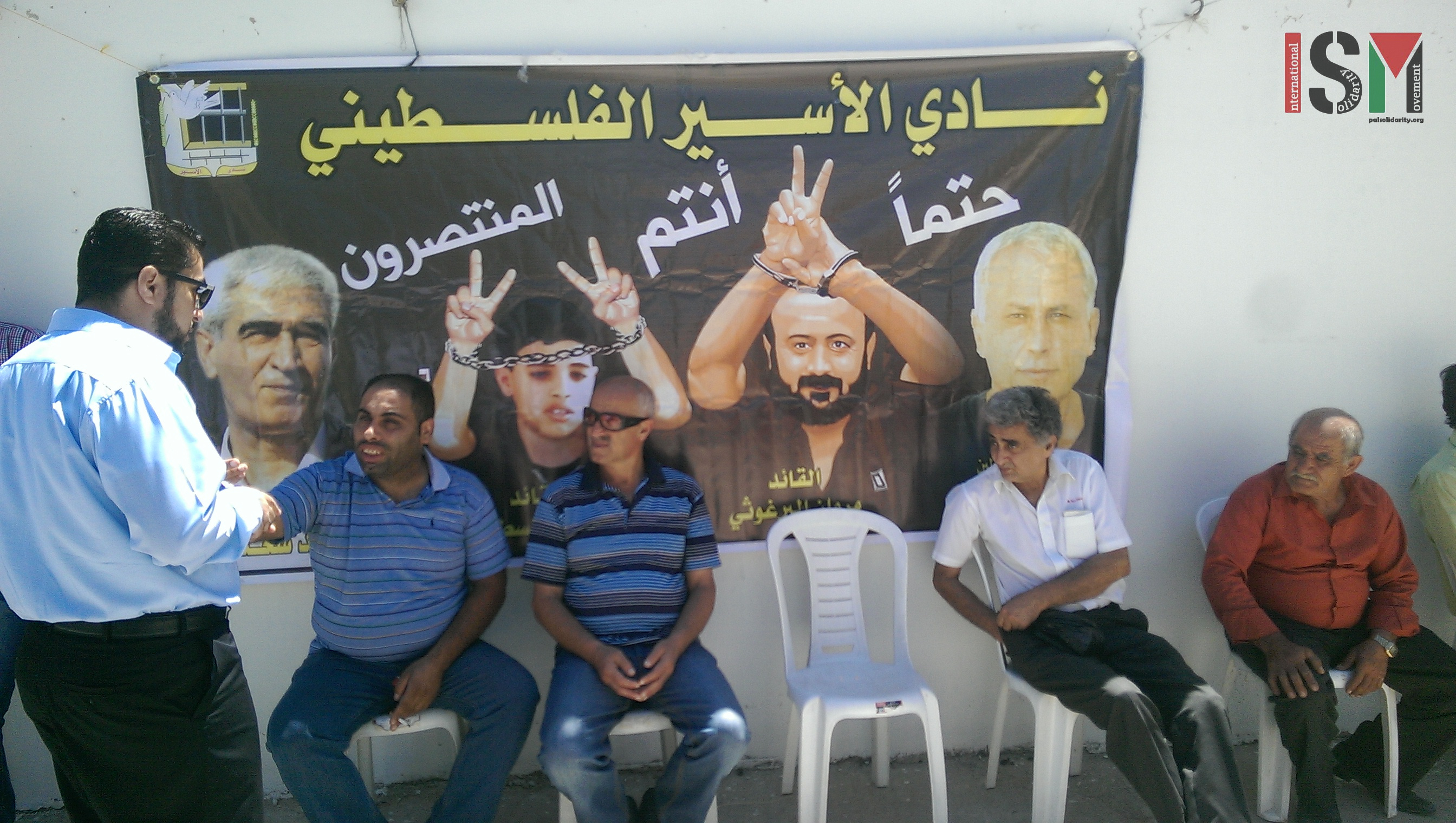Tag: Hunger strike
-
Two days of clashes in al-Khalil in connection with prisoners’ hunger strike
30th April 2017 | International Solidarity Movement, Khalil Team | al-Khalil (Hebron), occupied Palestine Heavy clashes broke out during two consecutive days as Israeli forces stormed the Bab Al-Zawiah neighborhood in al-Khalil, attacking young Palestinians protesting in solidarity with the ongoing prisoners’ hunger strike. It resulted in multiple persons being injured, caused by live ammunition…
-
Hunger strikes and family visits in occupation jails
30th July 2016 | International Solidarity Movement, al-Khalil team | Hebron, occupied Palestine A demonstration in solidarity with hunger striking prisoners and against the cut of family visits by the International Commmittee of the Red Cross was organised by the Hebron Defense Committee in occupied al-Khalil (Hebron) on 28th July 2016. The sit-in took place…



